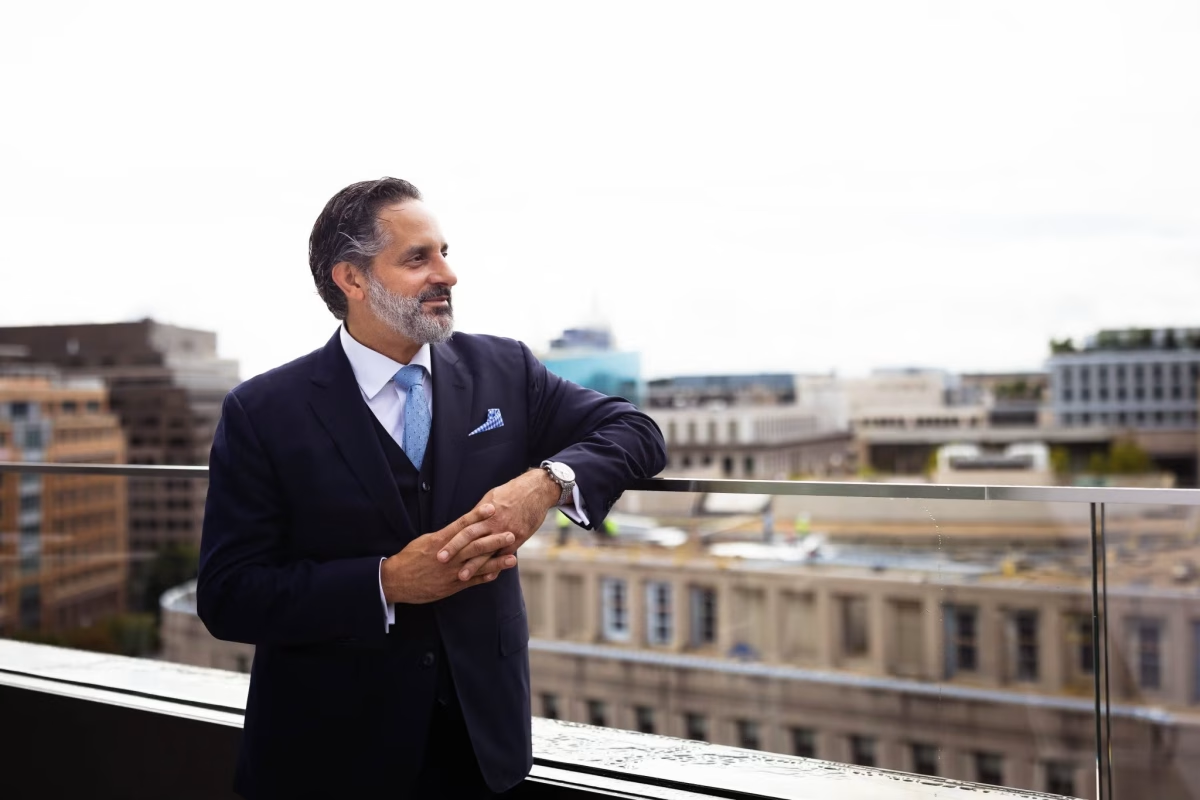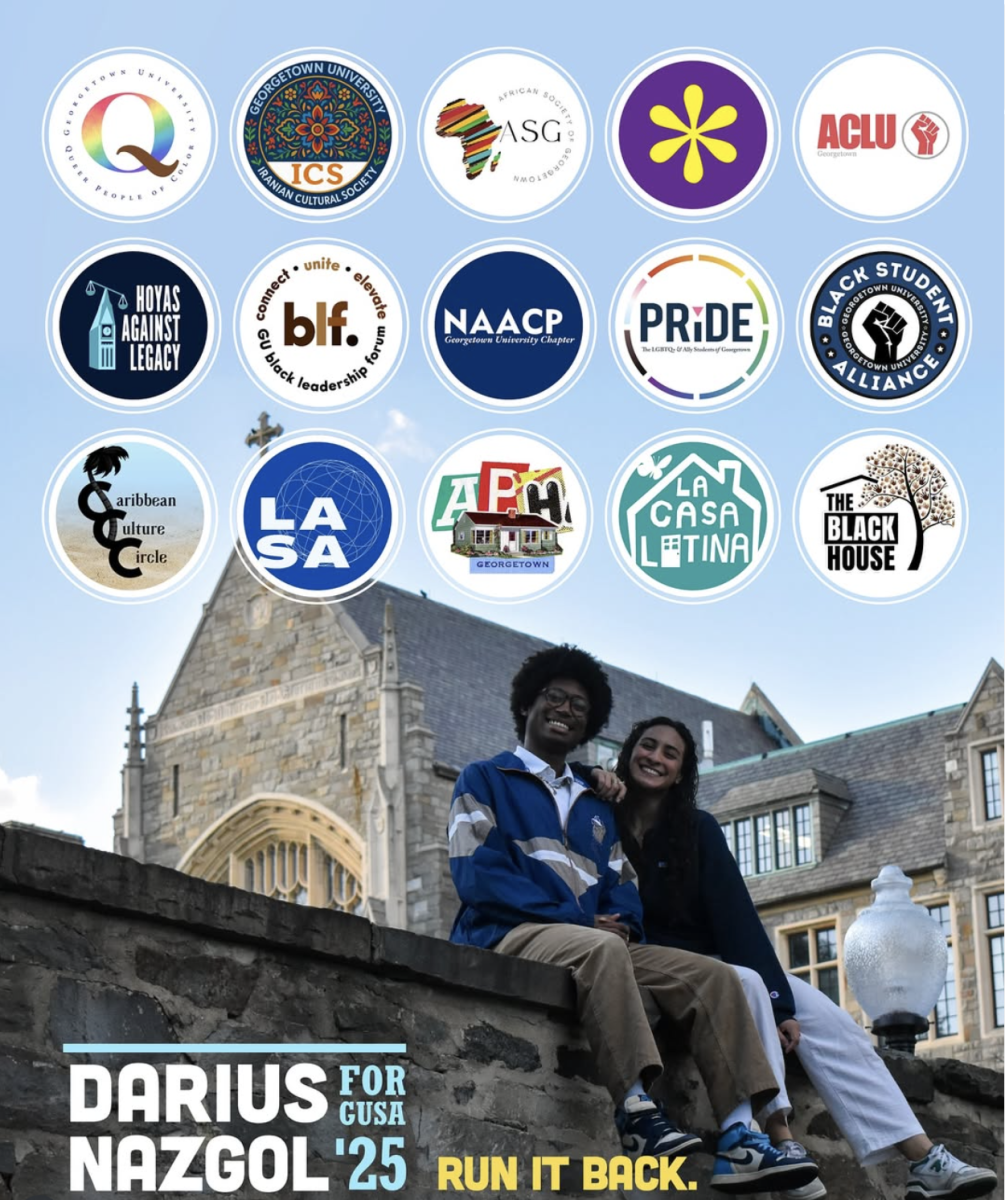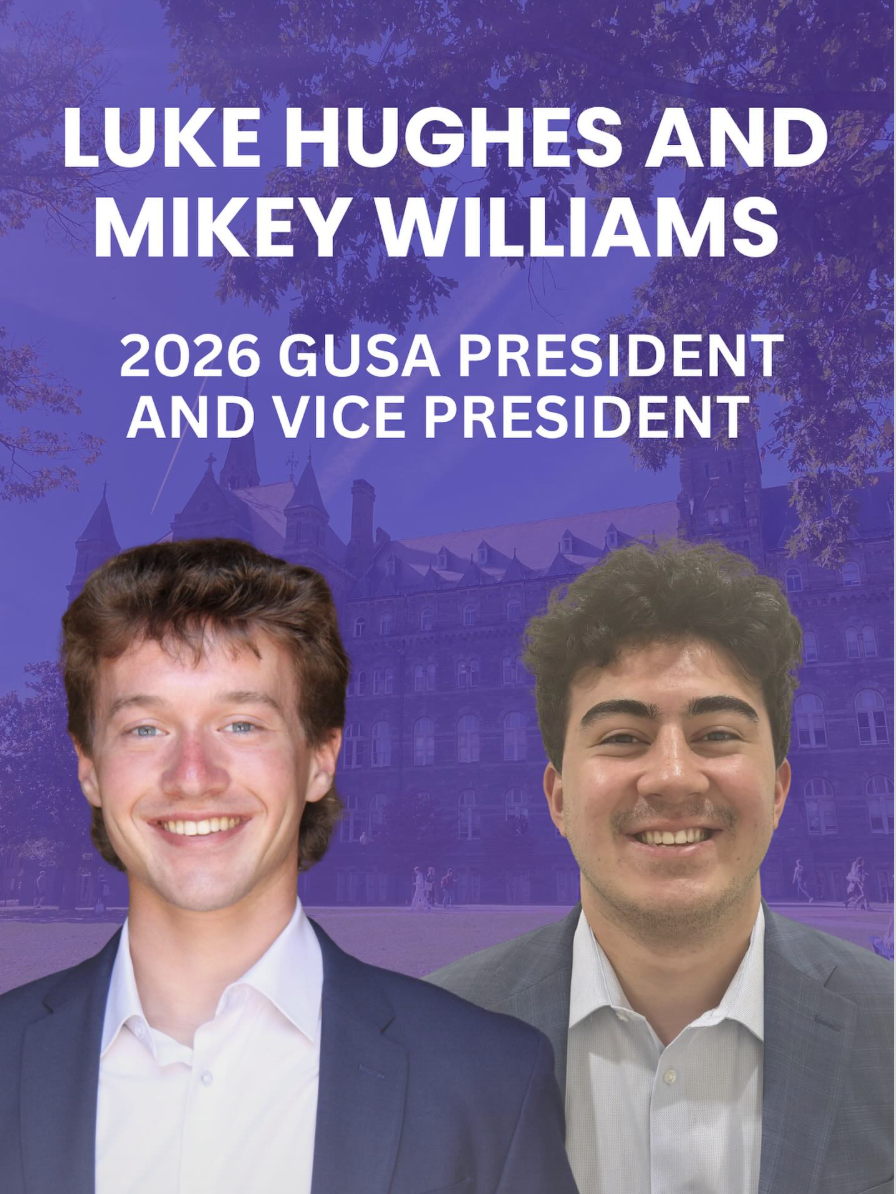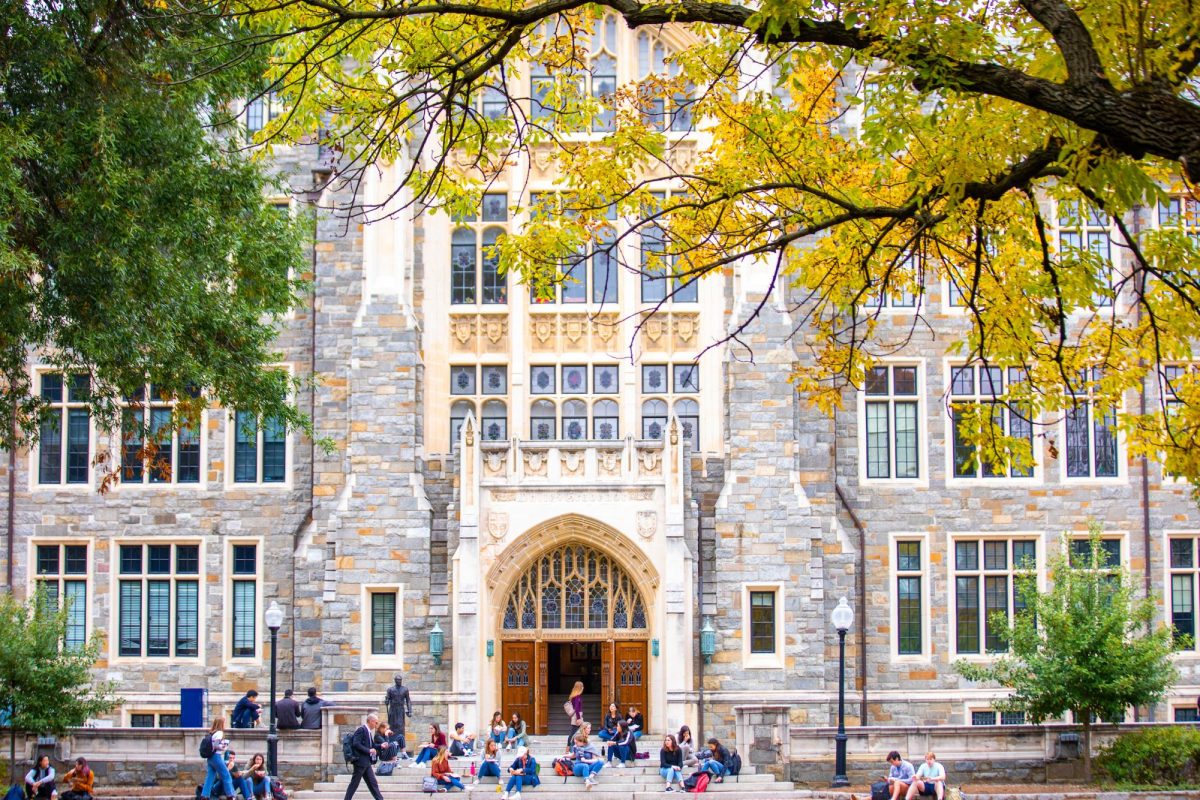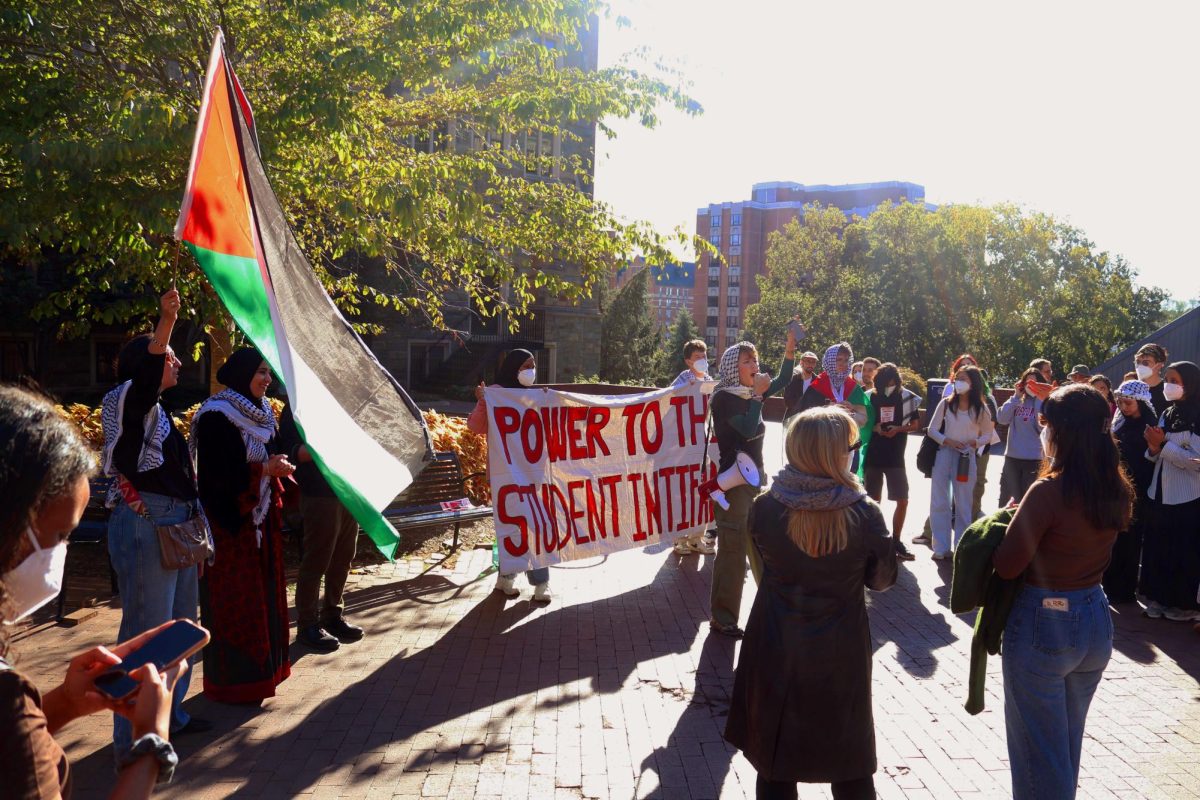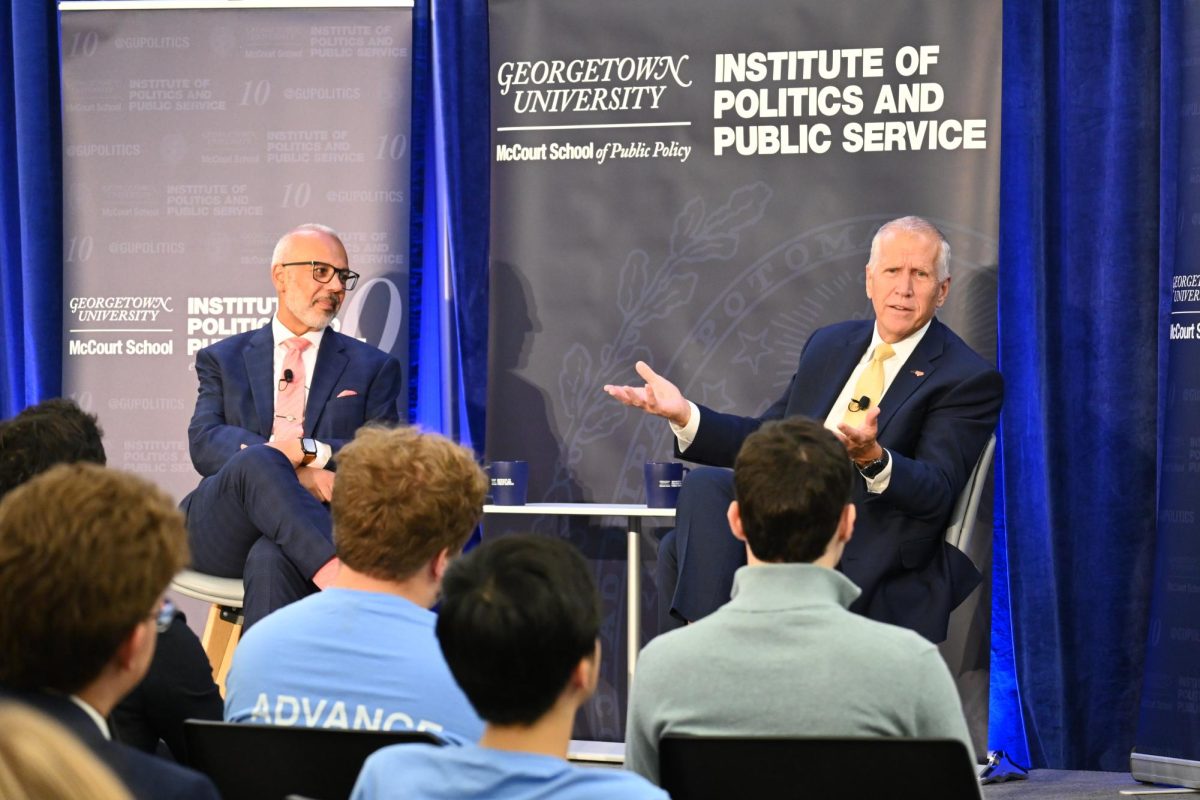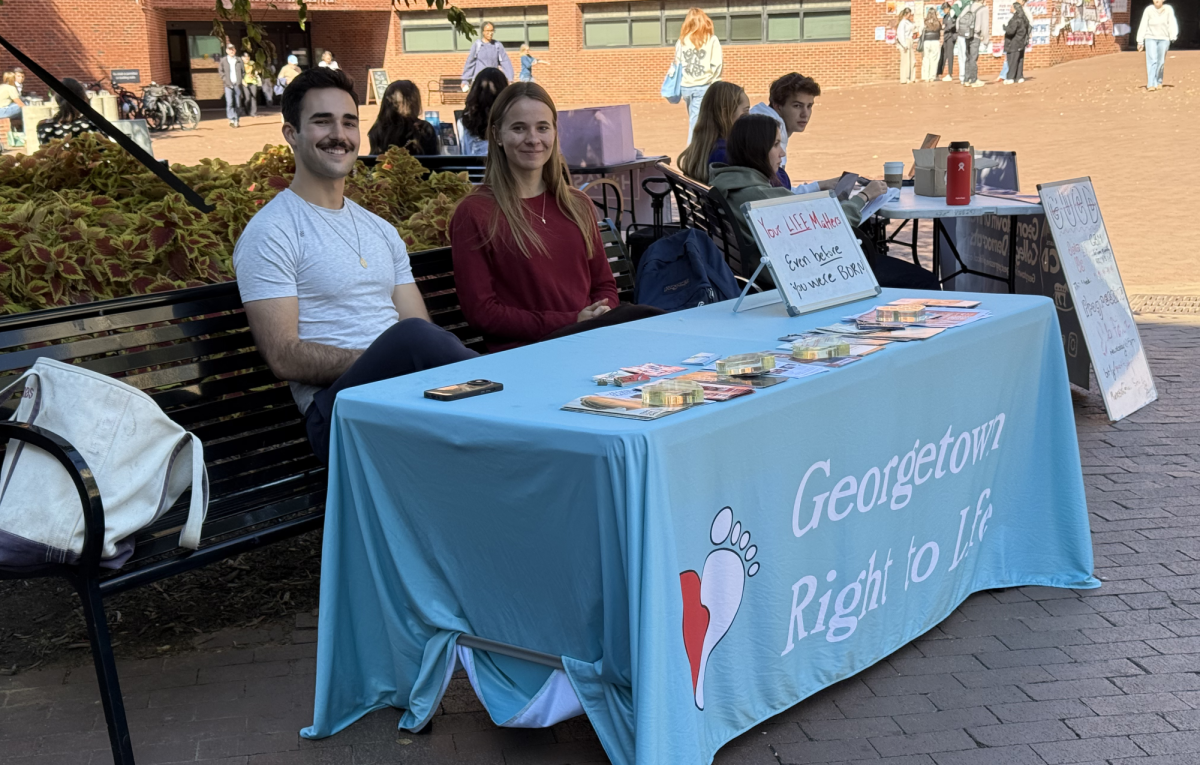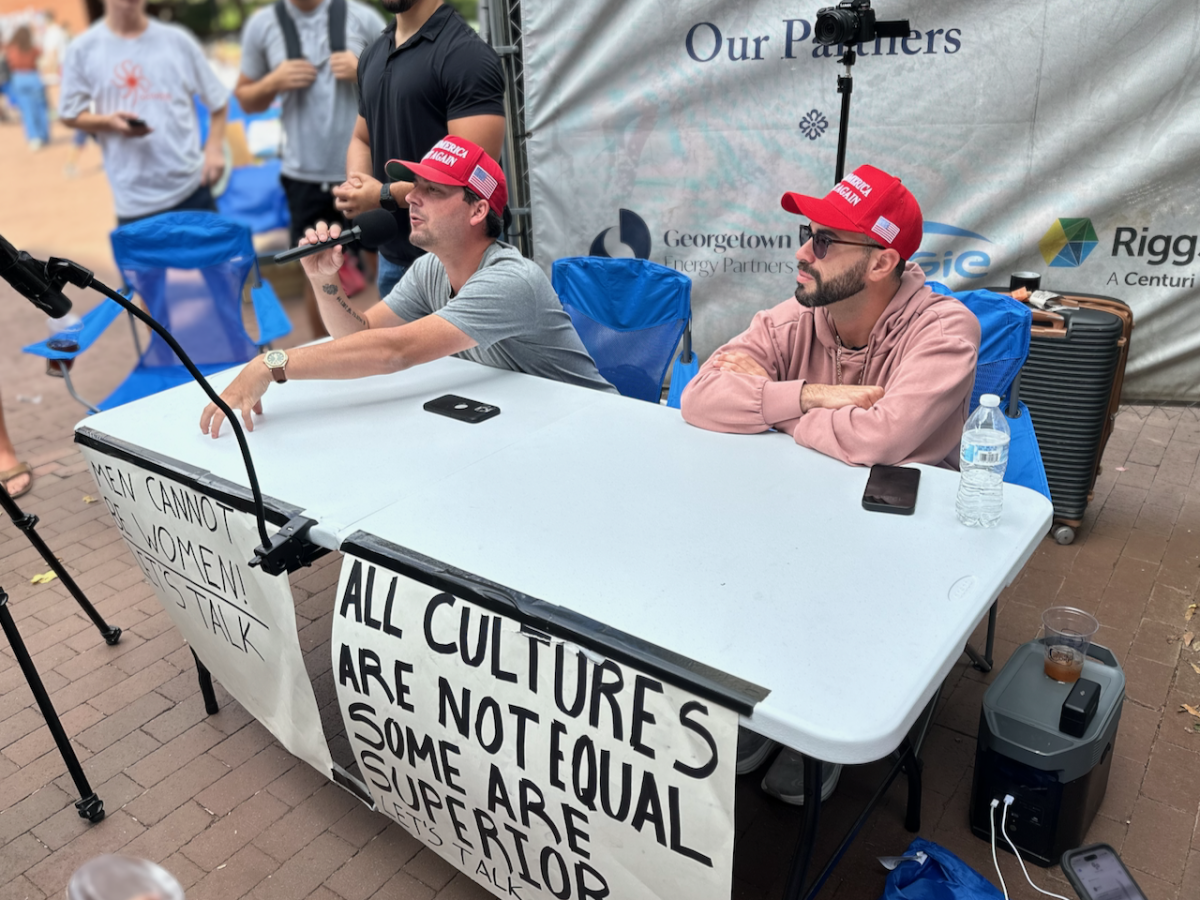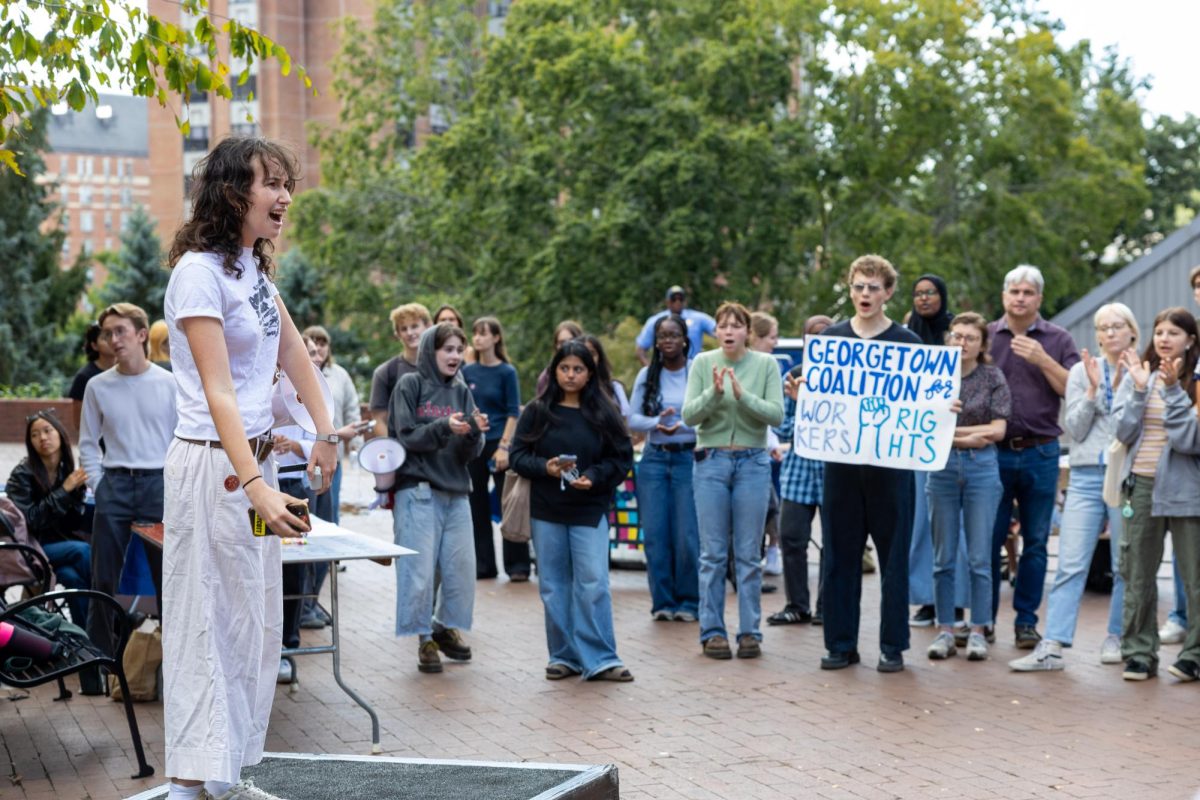Eduardo M. Peñalver will become Georgetown University’s 49th university president with a decades-long career in Jesuit and legal education behind him.
Peñalver has served as the president of Seattle University — a private Jesuit university in Washington — since 2021, and before that served as the dean of Cornell Law School. His tenures there featured a commitment to Jesuit principles, the creation of new university departments and partnerships, and a focus on student body diversity.
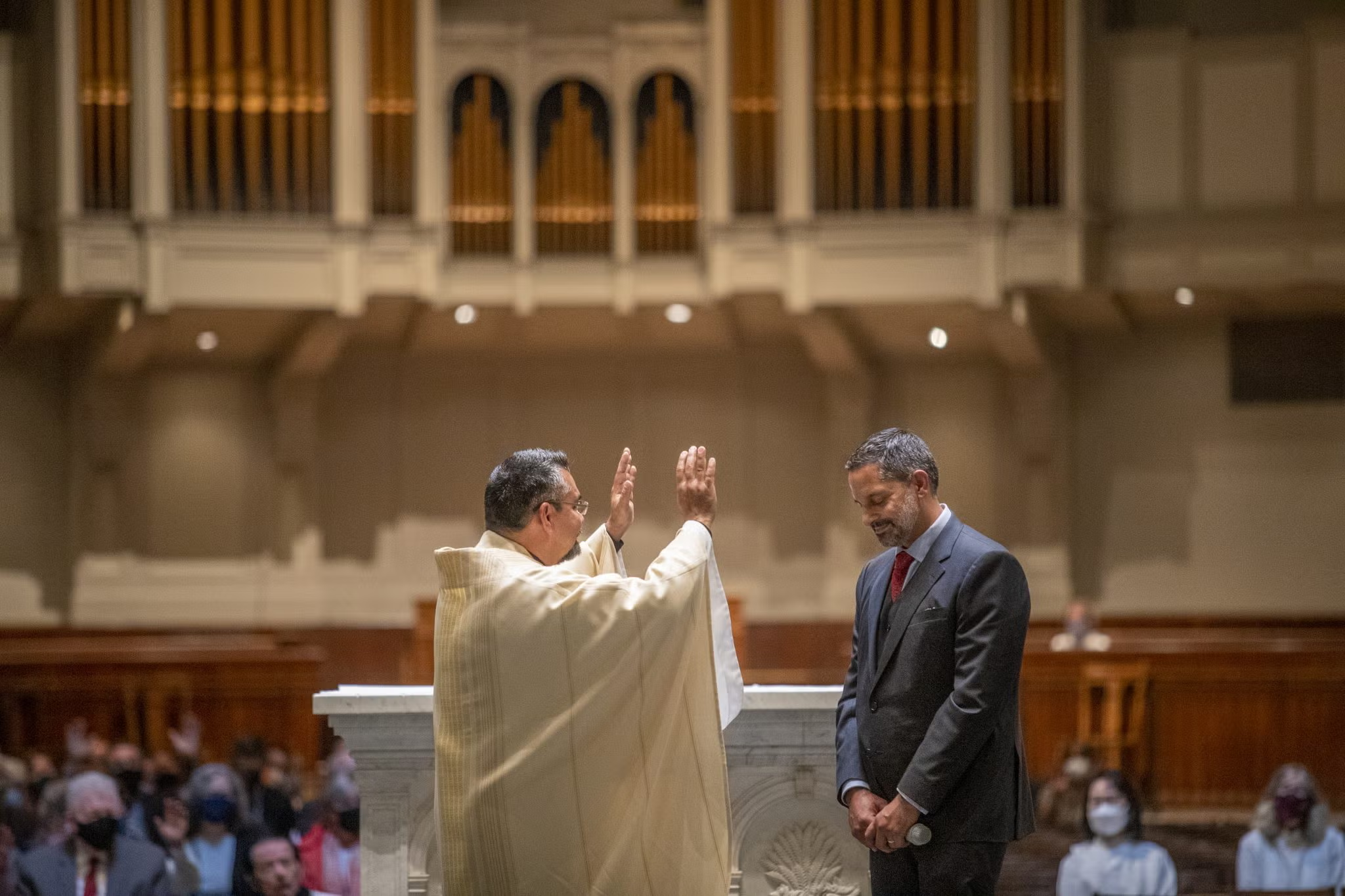
Peñalver said he will bring his previous experience in Jesuit education to the role of university president at Georgetown.
“We share an aspiration to do more than teach a skill or impart knowledge, but to get students to grapple with the deeper questions, to pursue more ambitious goals like wisdom and understanding and meaning, in their academic work and in their lives,” Peñalver said in a university press release.
Peñalver earned a bachelor’s degree in history from Cornell University and studied philosophy and theology as a Rhodes Scholar at the University of Oxford.
After graduating from Yale Law School, Peñalver clerked for U.S. Supreme Court Justice John Paul Stevens in 2000. In a memorial article in the Harvard Law Review in 2022, Peñalver said he admired Stevens’ judicial consistency throughout a period of growing Supreme Court partisanship.
“Justice Stevens, the temperamentally humble, midwestern Republican who was appointed by a Republican president, confirmed by a unanimous Senate, and took each case as it came to him, presents us with an appealing model of judicial fairness and consistency in the face of a changing Court and a polarized nation that sometimes seems to have left such ideals behind,” Peñalver wrote in the article.
Following his clerkship, Peñalver taught courses at Fordham Law School, Cornell Law School and the University of Chicago Law School between 2003 and 2014, becoming a leading scholar in property law.
“I learned how much I loved teaching and how much I enjoyed interacting with students,” Peñalver said in the press release. “I found a great synergy between my teaching and my research.”
At Fordham and Cornell, his research focused on property, ownership and land use. He co-authored “Property Outlaws,” a book on disobedience and property law, and “An Introduction to Property Theory.”
In 2014, Peñalver returned to Cornell as the dean of the law school, becoming the first Latino dean of any Ivy League law school. Throughout his tenure, Peñalver told the Cornell Chronicle, demographic diversity increased and the school doubled its spending on financial aid, allowing 40% of students to graduate without student loan debt.
Peñalver said that, as a professor of law, he made conscious efforts to mentor students of color, particularly Latino students.
“Cornell has a wonderful faculty that is extremely supportive of our students of color. And our student body is remarkably diverse,” Peñalver told Lawdragon in 2014. “Ensuring that minority students — and all students — experience Cornell as a welcoming and supportive environment will continue to be a priority for me as dean.”
In Georgetown’s own admissions landscape, the percentage of students of color admitted to Georgetown dropped 4% between 2023 and 2024 following the U.S. Supreme Court’s 2023 ruling ending affirmative action.
Under his leadership, Cornell Law School also developed two new degree programs and three new clinical programs.
Peñalver, as Seattle University’s 22nd president, was the first layperson to assume that role at the university. When joining Seattle University, he said the Jesuit values of the school were already intrinsic to his leadership style.
“To have the opportunity to go back where I started and serve a Jesuit institution that is an important part of the higher education landscape in the Pacific Northwest was really appealing to me,” Peñalver told the Cornell Chronicle in 2020. “Because of its Jesuit focus on social justice and public service, Cornell’s ‘any person’ ethic and commitment to public engagement is very strong there as well.”
As president of Seattle University, he took steps to respond to federal actions on higher education, including maintaining ROTC scholarship funding for transgender students after the federal government banned transgender individuals from military service. He also signed a joint letter by the American Association of Colleges and Universities criticizing government overreach into higher education, which was also signed by Interim Georgetown University President Robert Groves.
At a May 7 town hall at Seattle University, some Seattle University faculty condemned Peñalver for allegedly excluding faculty, staff and students from university decisions, including those related to closing campus facilities and changing the academic calendar system. Students also criticized Peñalver for the university’s choice not to take a position on the Israel-Hamas war and for his behavior at the May 7 town hall.
In a letter published in The Spectator, Seattle University’s student newspaper, faculty said Peñalver’s response to students’ questions was inappropriate.
“When students demonstrated deep care and courage and took the risk of sharing their thoughts, as well as their pain and anxiety, challenging their university with urgent demands in the face of tragic events, President Peñalver silenced them; he dismissed their ideas, their convictions and their moral clarity, asserting only his own perceptions of what is true, what is ‘factual,’” the faculty members wrote.
In a responding letter, Peñalver said he recognized missteps in his words and actions at the event but defended his policymaking decisions.
“I am constantly reflecting on my performance and working to do better,” Peñalver wrote. “That effort includes daily Ignatian prayer, conversations with trusted advisors (both Jesuits and laypeople), and the consideration of feedback like that you have offered.”
Seattle University created a partnership enveloping the Cornish College of the Arts into the school and set the groundwork for an art museum on campus during Peñalver’s tenure.
At Georgetown, Peñalver said he plans to build on his career in education by centering Jesuit values, engaging with campus community in rigorous dialogue while developing his relationship with faculty and students.
“I’m honored to serve in this role and very aware of the deep tradition and legacy Georgetown has rooted in its Jesuit values,” Peñalver told The Washington Post. “What I want people to know about me: I have always been and will be committed to operating with transparency, openness and engagement with everyone.”


